Hello #smartcommunity friends and welcome back to #mobilitymarch! In this episode of the Smart Community Podcast, I have a great follow up conversation with Oliver Lock, Urbanist and Spacial Data Scientist currently finishing up his PhD in Participatory Analytics. You might or might not remember that I spoke with Oliver way back in episode 41, in 2018 back when we were called the Smart City podcast. We talked then about engaging people with smart cities and so in this episode Oliver tells us about his passion for engaging people with how their data is being used. Oliver tells us a bit about how he got into this space and what’s changed since he was last on the podcast, before we dive into a great chat about his PhD and key findings from his research into participatory analytics. He tells us what participatory analytics is and how it works to connect the tech, decision makers and the community, plus a bit about the Civic Labs accelerator program he’s currently working on. We discuss the power of local council relationships with their communities and the possibilities for regional areas since the ‘flee change’ of people leaving cities post COVID, as well as the opportunities that now exist for community engagement due to people’s willingness to use QR codes for Covid check-ins. We finish up discussing emerging trends of transformation in transport modelling and not just big data but big participation in data. As always we hope you enjoy listening to this episode as much as we enjoyed making it.
Listen here:
What we cover in this episode:
- Oliver’s background and passion for engaging people in how their data is being used
- What’s changed in engaging people in Smart Community space since 2018 when Oliver was last on the podcast
- How Oliver got into the data and Smart Community space
- What is a Smart Community to Oliver
- About Oliver’s PhD and key findings from his research into participatory analytics
- How participatory analytics works to connect the technical, the decision makers and the community
- About the Civic Labs Accelerator Program Oliver is working on now
- The power of local council relationship with their communities
- The flee change of people moving to regional areas post COVID and the possibilities this poses for regional areas
- Opportunities for community engagement thanks to people’s willingness to use QR codes because of COVID check-ins
- The emerging trends of transformation in transport modelling and not just big data but big participation in data
Quotes:
“I found that there was this whole kind of treasure trove of research emerging at the time, called urban informatics, community informatics, where it was all about how can people, place and technology connect. And from that, I’ve always been interested in that space for about maybe even 10 years now and developing this idea of how we can increasingly connect and improve the environment around us with technology and make stronger communities around us using technology as well.”
“A lot of the ways we think about technology is we stopped thinking of things as technology once it becomes common. So you know, you think about things like the wheel. That was a technology a long time ago, and now it’s just a wheel. It’s nothing special.”
“I went on this journey of looking at how we can achieve, essentially, participatory dashboards, across all types of mobility decision making. And later, I changed the term to participatory analytics, because I thought it was more about the process of citizens being involved in analytics, than the actual technology itself, the dashboard.”
“I found that 85% of people that tweeted about transport performance said that their tweet wasn’t their best or main opinion about transport, which I thought was quite significant. And they also said they’d prefer a more active form of participation, than having their tweets collected.”
“Essentially, where you see these kind of network level characteristics, these passive data traces, and active citizen feedback all in one spot. So here’s an issue. And you actually get people when they make their comment about that spot to write what the issue is. So it’s such a powerful decision support system, because you’ve got everything in one spot, which is, you know, a dashboard, right, you’ve got all information in one spot. And it’s got even the way to solve it, or one way to solve it.”
“Traditionally, when we look at liveability, we think about how we use these surveys like the economic intelligence unit, which are useful for their design which is traditionally for relocating people for corporate purposes to cities… So we think about liveability through the lens of a professional in a particular industry, rather than someone that might be living in our area or regional area, or not, you know, a full time working professional in the financial sector.”
“There’s two aspects, [there’s] community engagement in regards to current issues, and then there’s community engagement that [is about] visioning. And I think, particularly as these areas are growing, it would be really exciting to see some more public engagement about visioning.”
“People’s willingness to use QR codes because of COVID check ins, I think is a really good opportunity to ask people more questions…these new digital literacy skills like that emerged from the pandemic, I think are going to provide useful, new affordances for people to engage in the world around them.”
“I think the way that we currently use things like transport modelling really needs to go under a huge transformation…all sorts of approaches that have been developed a really long time based on the assumptions of how we’re going to be in the future, based on data and trend lines of how the future will be. And all of that is different now, the world is changing very fast.”
“There’s much more information about us out there than we could ever tell anyone with words. And that’s incredibly scary. I think we need to think about how we can control and verify and approve of how data is being used more…it’s really important for us to get a better grasp of what’s happening there.”
Connect:
Find the full show notes at: www.mysmart.community
Connect with Oliver on LinkedIn
Connect with me via email: hello@mysmart.community
Connect with My Smart Community via LinkedIn or Twitter and watch on YouTube
The Smart Community Podcast is produced by Perk Digital.
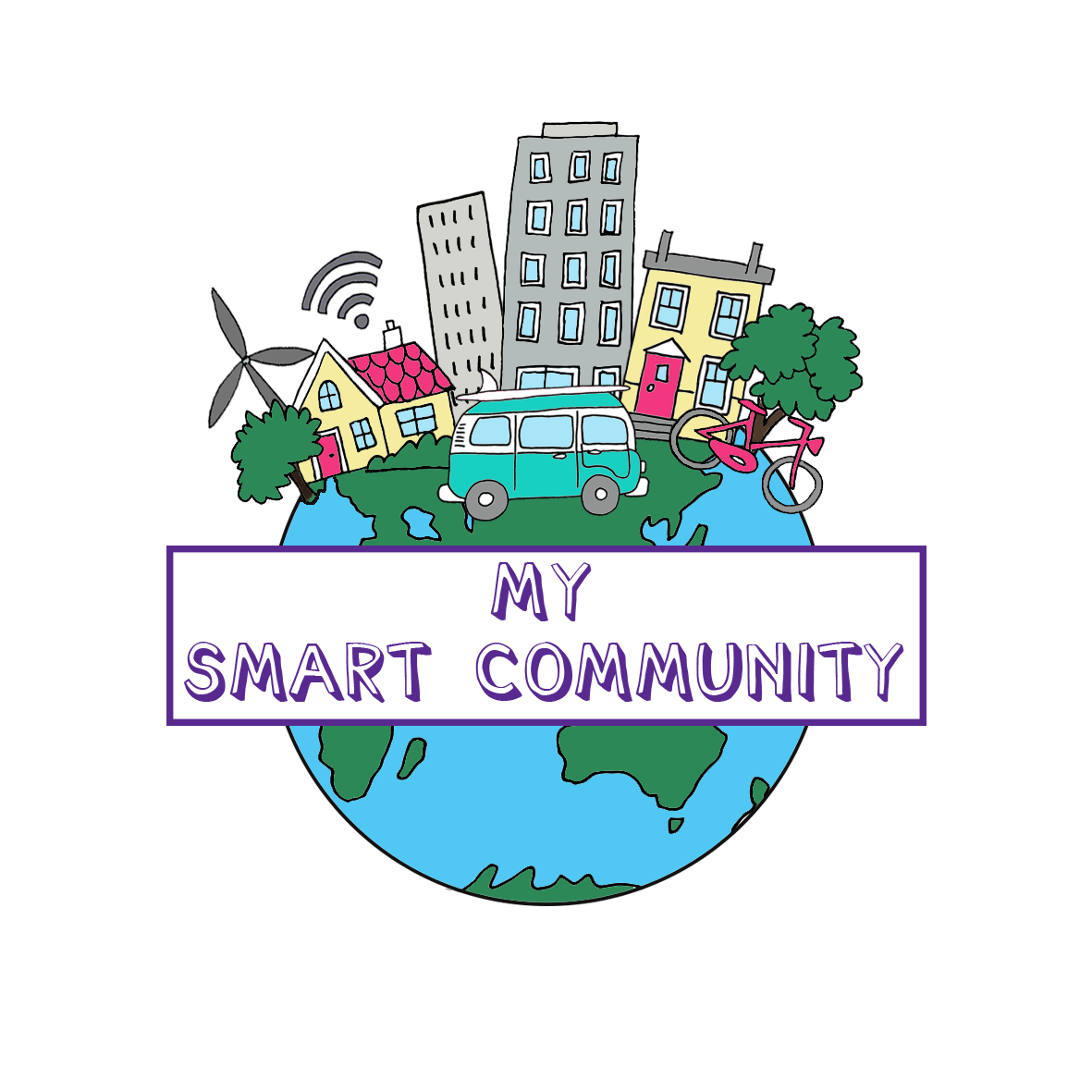
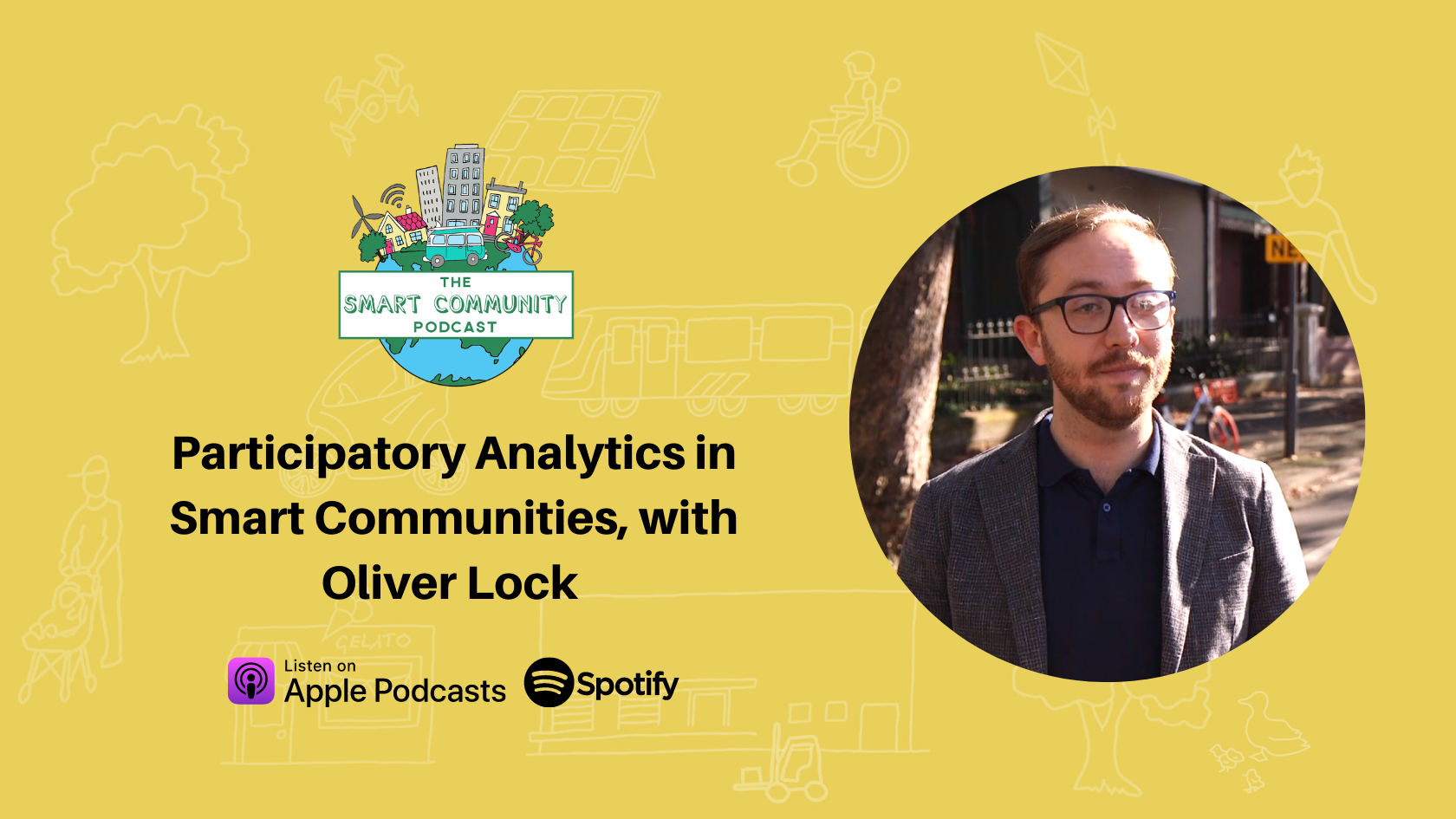
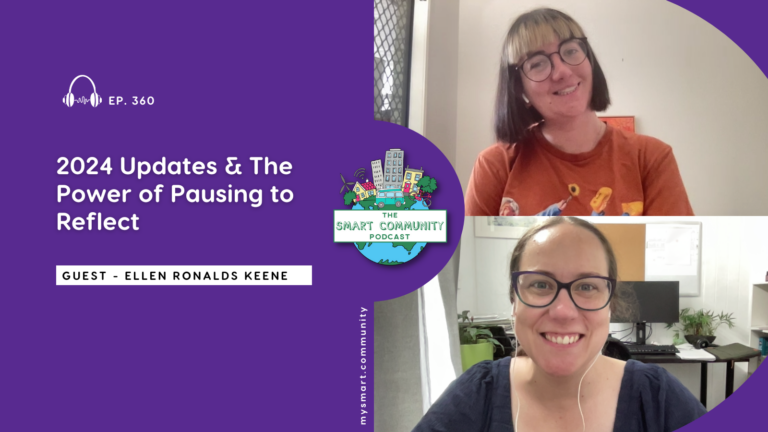
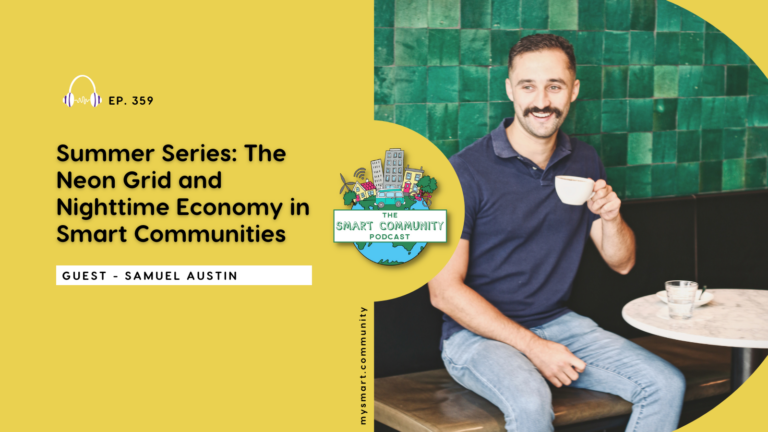
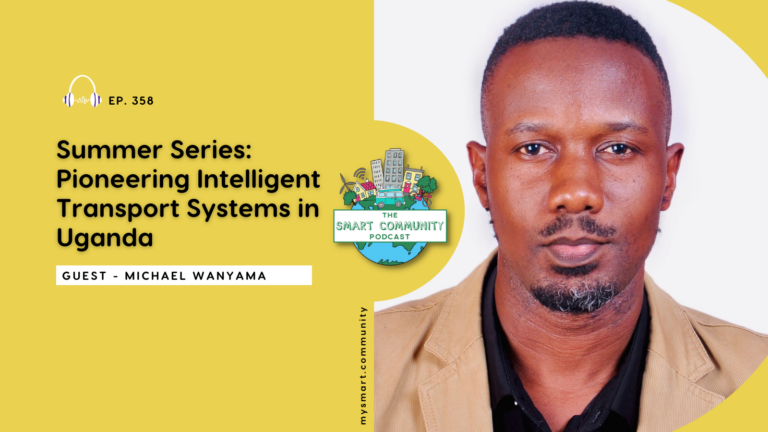

0 Comments